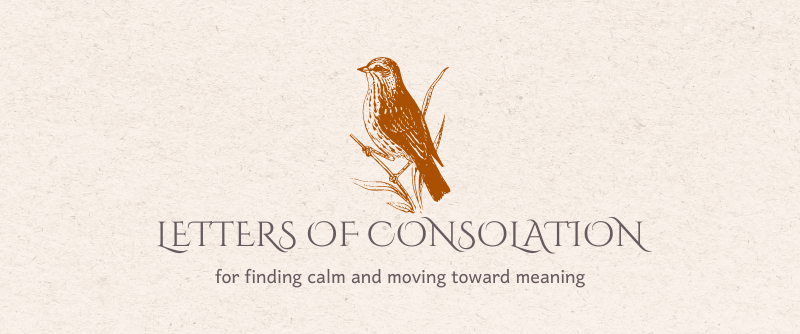How could we possibly forgive ourselves
September
Originally shared in Letters of Consolation, on September 8, 2024.
The act of crying and its anatomy is a wonder of human nature that never ceases to amaze me.
Have you ever considered it? This thing we first do, in the midst of childbirthers and a so tired mother, to announce our entrance into this world, then repeat throughout our lifetime — when we feel pain sloshing around our chest, when our heart is ripe with delight and thick with fear, when we’re too back-hand-slapped by life for living to make sense, when a joke penetrates our belly, sway sway swaying us to laughter. This thing that’s made by an emotion and shaped as a reliever or demand or plea, with or without tears.
In its first two forms, a cry is often shared and loud, a reliever or demand shameless about its appearance, ready to be witnessed. But as a plea, a cry can become a lonely, silent affair, determined to stay within the crevices of the chest, unseen, unheard, afflicting us round the clock.
There seem to be only a few cries as quiet and lonely as the plea for self-forgiveness.
We live, we err, and for some of us, our wrongdoings chase self-forgiveness from one end of our head to the other until the practice becomes a faraway concept that leads to a cry of hopelessness: how can we possibly forgive ourselves.
We stay with that cry until it becomes a conclusion, a no-way-out posture of the mind. We let it be. Let it cloud us because why pardon a person who once had no heart. But what happens when we retain this state is that we prevent ourselves from stretching the cry into its underlying question. Because we’ll see a question with no straightforward answer? Because we’re unready to address the root of our cry?
How can we possibly forgive ourselves when we can’t forget?
That’s one question we might find in that cry. Memory replays our experiences, the good and the bad, over and over again, making our faults seem worse every waking day. It’s a storage space we can’t easily erase. Even if we did, we find, with time, that forgetting is not forgiving.
To forgive is to acknowledge
How can we possibly forgive ourselves when we carry so much fear?
That’s another question we might run into. Poke around it a bit and you’d realize that what we’re most afraid of is repetition. The fear that those we love will suffer for our mistakes. The fear that we would, in some future or present when all is well with our life, lose the precious things (status, wealth, peace, etc.) we’ve acquired because of our history. We know the default actions that follow fear — fight, flight, or freeze. But none of these are acts of forgiveness.
To forgive is to accept
How can we possibly forgive ourselves after all we’ve done?
A final question we might find, engineered by remorse, a product of finally understanding that our actions can shatter another human’s life. Remorse is a sharp whip, formulated with guilt and shame, intensifying the pangs of memory and fear, necessary for recognizing our humanity, but quite unproductive when worn for too long.
To forgive is to amend
Imagine what knowing the right root question(s) to ask could do for us, especially since knowledge is the first essential element for resolving a problem.
Imagine how addressing the root question(s) could then slowly start redrawing our heart’s form, from a wailing line to the colorful concept of forgiveness we’d given up, emphasizing that to forgive is to renew, to forgive is to go on living.
Tea for relaxation
Music: Gods Creation, Daniel.
Music too: On The Nature of Daylight, Max Richter.
More music: Tems on Tiny Desk.
Deep dive: Why no one wants to host the Olympics.
Doing life: The price we pay for being productive.
Worth reading: Anne Lamott on forgiveness, self-forgiveness, and the relationship between brokenness and joy.
For more ideas like this, sign up for Letters of Consolation; letters for finding calm and meaning, delivered every two weeks, on Sundays.

 @etashelinto
@etashelinto